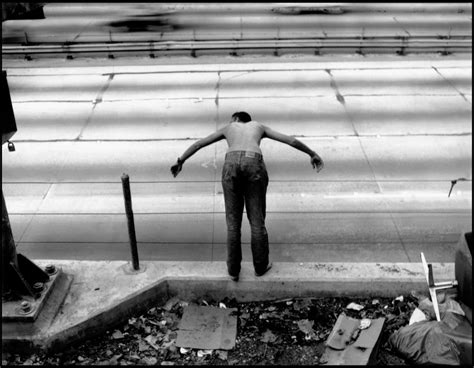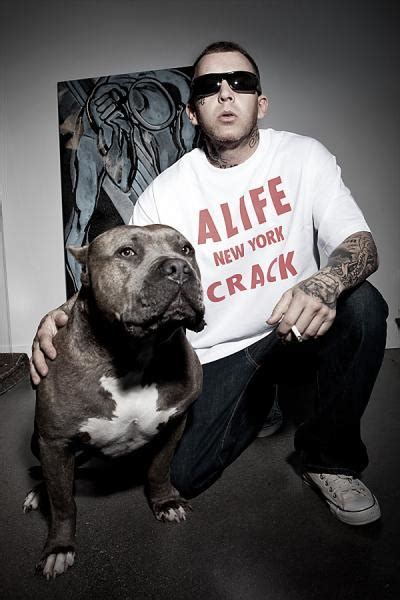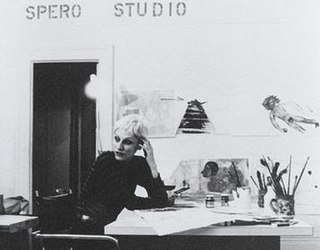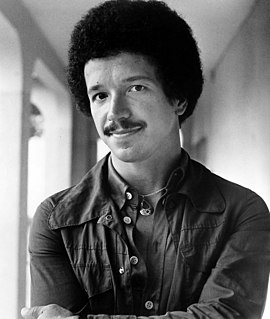A Quote by Ava DuVernay
I like silence. Aesthetically, I feel strangled by the fast cutting and a wall of sound. And I think showing black people thinking onscreen is radical.
Related Quotes
In general, in all my films, I choose to create a certain mistrust, rather than claiming that what I'm showing onscreen is an accurate reproduction of reality. I want people to question what they are seeing onscreen. In the same way as I used the narrator, I also used black and white, because it creates a distance toward what's being seen. I see the film as an artifact rather than a reliable reconstruction of a reality that we cannot know.
The act of me just being robust in the world is so radical - it's so radical for a black woman to think she's going to be a star, because it takes so much to get there. It's still a battle every day, but I feel happy because I feel like I cracked the code and figured out how to work through it. Now I want to give the map to other women.
Silence is Golden; it has divine power and immense energy. Try to pay more attention to the silence than to the sounds. Paying attention to outer silence creates inner silence: the mind becomes still. Every sound is born out of silence, dies back into silence, and during its life span is surrounded by silence. Silence enables the sound to be. It is an intrinsic but unmanifested part of every sound, every musical note, every song, and every word. The unmanifested is present in this world as silence. All you have to do is pay attention to it.
If you ever get to a wall, you just got to break that wall down and keep going, and I feel like I have come up with some conceptual songs that will really connect with people and that is something that I have been showing and improving my lyrical ability so much that I came to this realization that I also want to make music that people can connect with.
I began to feel that my greatest sense of success would raise the level of masses of people, rather than the individual being accepted by the Establishment. So, this kind of personal thinking, combined with, say, even the little bit more radical thinking - because at one time the pacifist movement was a very radical concept.
I never thought of my work in terms of being radical, although I tried to make it radical- that is, to shift the premise of what goes for pictures on a wall. I wanted my work to say something other than the usual- the usual format for an artwork being a rectangle, a square, or anything flat, framed, and attached or hooked on the wall. That was accepted practice, mainline thinking.
Radical militant feminist believes that women of color and Black women in particular have written the cutting edge theory and really were the individuals who exploded feminist theory into the directions that has made it more powerful. So I see us as the leaders not just of Black people and Black women in terms of feminism but in terms of the movement as a whole.
A good leader has a plan that consists of changing simple pictures. Just because a group of people has a bunch of boards, hammers, and nails does not mean that they are building a house or even anything recognizable. Sometimes leaders think they are doing their job just because there is a lot of hammering going on. As a society we like the sound of hammering, but we are uncomfortable with the sound of thinking, which is silence.
I'm always thinking about what a black lady would think about what I'm doing, just because I feel like they have such great taste, mostly because as black women, we've spent a lot of time downloading what a white male narrative is, so in my head, I'm like, 'If a black woman likes it, if she responds to it, then it's probably pretty damn great.'
People often ask me if I feel discriminated against as a black female director. I don't. I'm actually offered a ton of stuff. But I only want to direct what I write. And I prefer to focus on black female characters. What's most important to me is to put characters up onscreen who are not perfect, but who are human and flawed.
Behavioral scientists distinguish between fast thinking and slow thinking. Fast thinking is represented in the mind's System 1: it is automatic, intuitive, and often emotional. Slow thinking, reflected in System 2, is deliberative and reflective; it likes statistics. It's hard to think of a purer System 1 candidate than Trump.
I feel like I'm doing something that's worthwhile. I feel like I'm showing something other people haven't shown. I don't get to talk to the people who I photograph, I just go, along, banging away. So I don't really have a relationship with them. A lot of people think it's very important. I don't. It's like love at first sight. I have an impression when I see somebody, and I have an idea of who they are, or what they are.







































